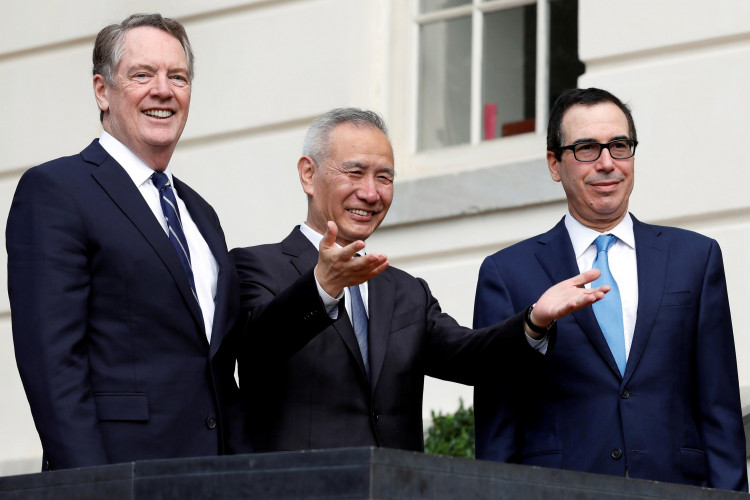China stocks fell on Wednesday as hope diminished over a substantive US-China trade deal, with new domestic indicators of economic weakness also curbing the risk appetite.
The CSI300 blue-chip index closed down 0.3 percent to 3,922.69, while the Shanghai Composite Index closed down 0.4 percent to 2,978.71.
The stock lost most of Monday's over 1 percent losses, sparked by the Beijing-Washington agreement after both parties agreed to work towards a restricted settlement.
Nonetheless, the U.S. House of Representatives approved four pieces of legislation on Tuesday, keeping a tough line on China over the pro-democracy movement in Hong Kong and a legal dispute about Chinese telecommunications company Huawei.
In addition to consumer fears, China's factory gate prices fell at their fastest pace in September in more than three years as supply cools down on weak demand and U.S. trade pressures.
Chinese banks have issued more fresh yuan loans than anticipated in September, with a medium-term funding mechanism pumping 200 billion yuan ($28.18 billion) into the banking system on Wednesday.
"New trade uncertainties and earnings worries are putting pressure on the market today," said Shenwan Hongyuan Securities analyst Gerry Alfonso.
Property stocks are among China's top-performing markets, as "financial investments continue to gradually stream to the property sector, at least partially," he said.
Market stocks fell, driven by Kweichou Moutai Co., the largest alcohol producer. Since posting results that were worse than anticipated in the third quarter, the stock dropped 3.4 percent.
In New York, the Industrial Average of Dow Jones fell 22.82 points, or 0.1 percent, to 27001.98. The S&P 500 dropped by 5.99 percent, or 0.2 percent, to 2989.69, followed by the energy sector, which declined by 1.5 percent. The Nasdaq Composite dropped 24.52 points, or 0.3 percent, at 8124.18.
Retail sales unexpectedly dropped 0.3 percent in September, marking their first decline in seven months. Spending cutbacks on motor vehicles and online purchases, among other factors, weighed down retail sales.
The Wall Street Journal reported that there are questions about how much more China will actually buy in U.S. agricultural products and how long it will take. Those worries only came as China and the U.S. settled on the first step of a larger trade deal last week.
Additionally, Bloomberg News said that China needs U.S. duties on Chinese goods rolled back before sales go on.
US Secretary of Treasury Steven Mnuchin disclosed that he and other US economic diplomats will speak to China's Vice Premier Liu He next week to discuss some details ahead of a scheduled APEC Summit on November 16-17.
At the moment, Mnuchin said, there's no formal invitation yet and there's no plan "for a high-level meeting, but that doesn't mean we won't go," he said.
President Donald Trump said Wednesday a deal probably won't be signed until his meeting with Chinese President Xi Jinping in Chile next month. He noted the deal was currently being worked on.





